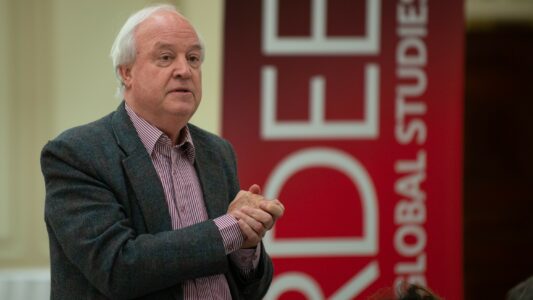Ambassador Jorge Heine on U.S.-China Competition and the Panama Canal

In a recent article, Ambassador Jorge Heine, Research Professor at Boston University’s Frederick S. Pardee School of Global Studies, was extensively quoted on his insights on the geopolitical significance of the Panama Canal. In a recent interview, Heine addressed former U.S. President Donald Trump’s remarks suggesting military action to reclaim control over the canal, highlighting the broader strategic concerns shaping U.S.-China relations in the region.
The Panama Canal, a crucial maritime passageway facilitating global trade, has increasingly become a focal point of great power competition. Trump’s statements – made just weeks before his scheduled inauguration – accused Panama of allowing Chinese forces to exert control over the canal, drawing renewed attention to China’s growing investments in Latin America. In response, the Panamanian government swiftly denied the presence of Chinese military personnel in its territory, emphasizing its sovereignty over the canal.
The debate over the Panama Canal’s neutrality is not new. Since the U.S. transferred control of the canal to Panama in 1999, concerns have periodically surfaced regarding foreign influence in its operations. However, Heine pointed out that Chinese companies’ management of certain port facilities has remained consistent for decades.
Addressing broader U.S.-China competition in Latin America, Heine argued that much of the alarm in Washington stems from ideological rather than strategic concerns. He believes that the focus should remain on realistic engagement rather than a “rhetoric driven by great power rivalry.”
As the geopolitical landscape evolves, Heine’s analysis provides a critical perspective on how Latin American nations navigate the growing competition between the U.S. and China while maintaining their sovereignty and economic priorities.
Read the entire article here